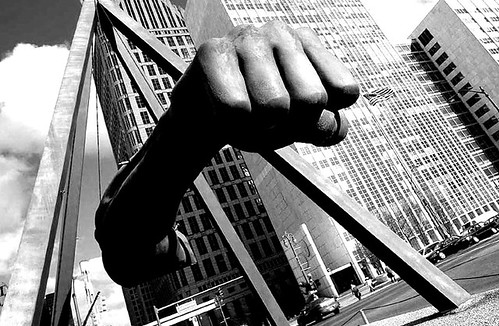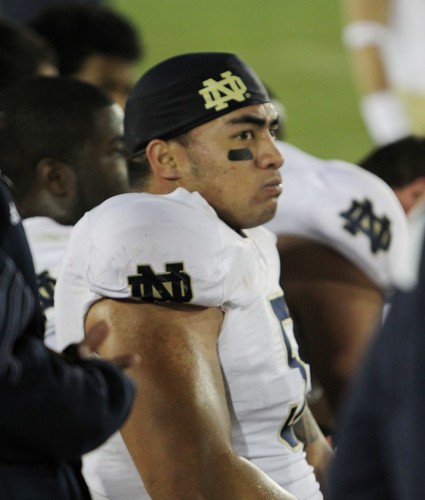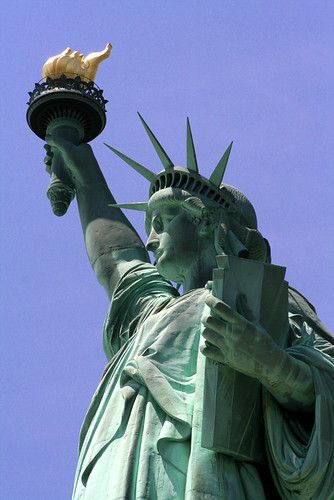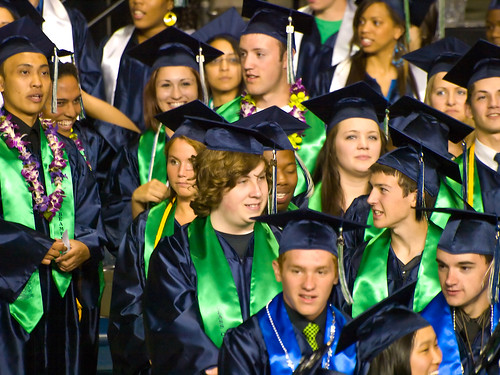 |
| Photo Credit: Matt_Velazquez |
The question that is forefront in many of our minds is: How could Te'o have been fooled? He appears to be an intelligent guy, and is well-known. How could this have happened? Remarkably, it seems that other athletes have also fallen victim to the trap of entering into online relationships with "imaginary" individuals.
In Te'o's case it seems that there may have been cultural factors that were at play that contributed to his involvement in this hoax. For many of us in the majority culture, we may be quick to dismiss the suggestion of cultural influences on something such as this. But in an intriguing piece in The Atlantic Monthly, Ilana Gershon offers some insights into Samoan culture that may explain some of the dynamics affecting the Te'o story.
Gershon writes:
"As an ethnographer, I heard a number of stories that sound almost exactly like Te'o's story—naïve Christian golden boys who had been fooled by other Samoans pretending to be dewy-eyed innocents. Leukemia was even a theme—I guess Samoan pranksters keep turning to the same diseases.
I heard these stories as gossip—women in their late teens or early 20s would tell me about how a much sought-after man in their church had been fooled. I never talked directly to a victim or a hoaxer about this, so I didn't write about this in any of my academic work. I did this fieldwork before Facebook or cell phones, and even before email became widespread outside of college circles. All the stories I heard involved husky voices on telephones, and maybe a letter or two.
What strikes me as particularly Samoan about Te'o's comments to ESPN is that he opens with a very familiar Samoan worry. It is not his own shame he is concerned about; he is worried about the shame this will bring to his whole family, all those who share his last name. Concern about family comes up time and time again in his tale.
So much of this news story is hauntingly familiar to me from fieldwork with Samoan migrants: the role of family, the half-hearted attempts to verify a person's identity that fail, the strong spiritual connection Te'o thought he felt with Kekua, and the hoax itself. He chooses family reunions over possibly seeing his elusive girlfriend. He understands when she is forced to do the same. In Samoan life, family obligations always triumph, and often seem to keep lovers apart.
Te'o was deeply concerned about how his parents would react to his new girlfriend, with the tacit undercurrent that this was not just about two people falling in love, but about two families entering into a complex alliance that will involve many mutual obligations.
He tried to find ways to have Kekua enter into his family's circle as a potential Christian daughter-in-law, encouraging her to text passages of scripture to his members of his family.
And I am not surprised that the Samoans playing the hoax felt the need to tell Te'o that his girlfriend died only hours after Te'o texted them that his grandmother had died. His girlfriend's family might have been obligated to send money for the funeral. If they did, the family name would be announced publicly at a large Samoan funeral in thanks. The hoax might have started to cost the hoaxers money and they would risk exposure, unless they took drastic measures, like pretending the girlfriend had died.
The only part of Te'o's story that I found strange was that, upon hearing that his girlfriend had died, he only sent white roses to her family, and his parents also only sent flowers. The Samoan migrants that I knew would have sent money, and the amount would have signaled how much the family valued the potential alliance. Flowers alone really wouldn't have cut it."After considering this whole situation through a cultural lens, perhaps this may not seem as odd to many of us as it initially appeared to be. Our cultural background often influences how we behave and also how we respond to the behavior of others. I'm willing to consider that at least some of these cultural factors may be a part of this developing story.
To read the rest of Ilana Gershon's piece on Te'o please click here.
(h/t to friend John Waidley for the link.)




